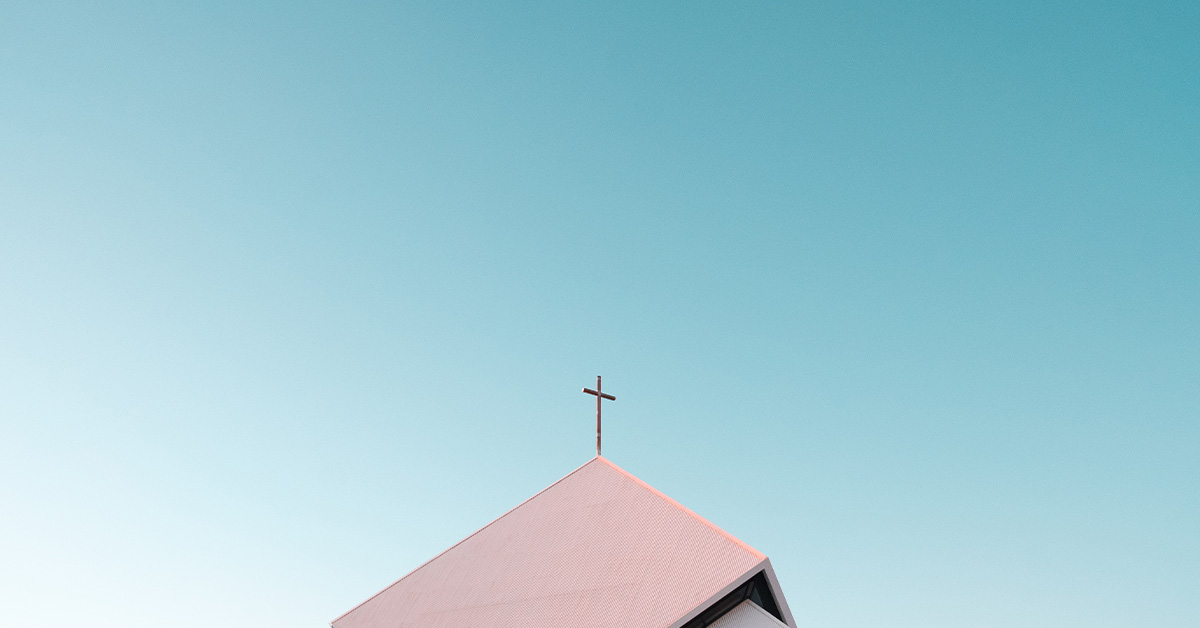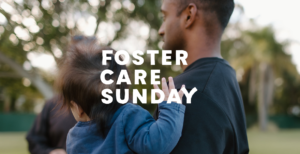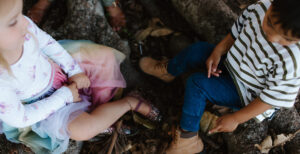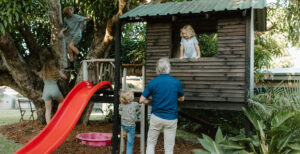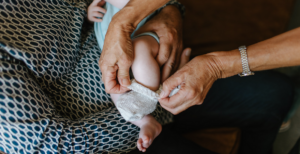Extending the boundaries. James’ Story
The first time I began to encounter young people who had been in foster care was when I was in a youth worker role in New Zealand. I began to meet more and more young people who had aged out of the system.
There was almost systemic homelessness happening (things have changed at a policy level since then). It awoke something in me and I couldn’t not respond. I saw it as a chance to live out the call to love my neighbour.
One of the best ways you can describe the Kingdom of God, is the way things ought to be.
When you encounter a situation where things are not as they ought to be, it’s an invitation to bring the Kingdom into that picture. It was just so clear to me that a 17-year-old sleeping under a bridge, isn’t the way it ought to be. But as a Christian, the way I ought to respond to that is to go, well, there’s a spare bedroom in my house, so let’s do this (in a safe way). We worked with our local church to begin to set up housing for those young people and over that time I honestly don’t know how many young people I had stay with me. It really opened my eyes to the scale of the challenge.
I grew up in a beautiful, open, loving family and that’s the way the world ought to be.
Families flourishing; God wants that. I think given the state of the world, God’s invitation to us is to extend the boundaries of our families.
When Jesus healed lepers, who were on the outskirts of the city and the outskirts of society, and told them to go and present themselves to the priests, we can view this through a community lens and see that the kind of healing was social. We could see these types of miracles every day. Someone didn’t have a dinner table to be at and now does. Someone didn’t have a bed to sleep in and now is in a warm inviting home. So, for me, I kind of feel this call to practical, ‘everyday miracles’.
At one stage I lived in a home made up of three couples fostering four teenagers who were ageing out of foster care and moving towards independence. I remember a time sitting at the dinner table with these young people who didn’t have a safe place to call home, along with a guy who had found himself homeless, a woman from Germany who smiled a lot but didn’t speak much English so probably didn’t understand what was going on, plus a few of us who’d chosen to put ourselves in that situation. I thought to myself, this is a miracle, this is the kingdom. I don’t say that to pat myself on the back, but to show how simple it is. An invitation to the dinner table.
I think everyone has an intention to do good. The human condition, for the most part, is that we just do what’s in front of us. Sometimes we might stop and reflect throughout the year, but a lot of the time we’re on autopilot just doing what’s in front of us. We’re insulated from what’s happening for other people. We’ve set up society that way.
I’ve heard teaching on Jesus meeting the Samaritan woman at the well that described it as Jesus being in the wrong place, at the wrong time, speaking with the wrong person. Maybe God is calling us to the ‘wrong’ places at the ‘wrong’ time with the ‘wrong’ people. When you’re able to make some shifts in your life where you reorient what’s in front of you – where you are, who you’re meeting – the everyday miracles can start to happen.
What fostering has been to me, in my experience, is creating space in my home and heart and life to welcome children and young people to share in what family is for me.
If I create a space in my home for someone, then I’ll just be doing what’s in front of me. In some ways it’s not a heroic act, it’s opening a space in your life for someone who needs it and just sitting at the dinner table each day, and having breakfast, doing what you normally do. It’s inviting others into my normal life. I think that’s what God calls us to. And it looks different for everyone.
There are so many things I could rank among the best things about fostering. For me personally, it was transformational. We talk about how in losing your life you find it and that we’re not living for ourselves. It’s easy stuff to talk about. Fostering made that practical; I could put legs on it. In terms of my own discipleship that was really helpful. My life is not just about me.
Any time you deny yourself and pick up your cross, God forms you.
I think sometimes it’s easy to think of discipleship as going to church, doing Bible study, and then at a certain point we engage in local mission. Being engaged in mission is part of discipleship. Jesus made it clear that He was concerned with the least of these, those in prison, the refugee who’s been made a stranger, the naked, the sick.
I love the book of James in the Bible (not just because it’s my name) because it’s kind of got this “put up or shut up” tone to it. James 1:27 says that to care for the widow and orphan, this is pure and blameless religion. There are different concepts that can be extrapolated from the idea of widow and orphan – a lot of young people in care aren’t orphaned but don’t have a family that’s safe for them; a parent might be supporting their family while their partner is incarcerated – but we’re told to care for people in these types of situations.
The book of James tells us to get on with the business of being Christians. The opportunity is for the church to roll up its sleeves.
In fostering, I’ve had some heartbreak along the way and things that didn’t go as you hoped and I think that’s the reality of life and people, the state of the world and the state of our hearts. It’s an invitation to practicing grace. There was one time I was challenged with the idea of unconditional positive regard. There’s the idea that when you try to change people they intuitively dig in and defend themselves, but the curious paradox is that as you accept people as they are, they begin to be open to change. So, I think that’s the thing to hold. How can we love people for who they are, as they are, and let God do His work? Care versus cure.
In this post-Christendom era, with many churches struggling, I think there is a beautiful invitation. What does renewal look like in this time? The church might have once held political power, but I think the call to the church is the idea of the power of the mustard seed to grow. Mother Teresa said, “you can do no great things, only small things with great love.” I feel like that’s the call; to find a different sort of power in society that comes through walking alongside the least of these and those who are marginalised. To me that’s a massive demonstration of God’s love.
When we look at different needs in Australia and practically what churches can address, you only have to look at the scale of children in Out-of-Home Care to know that it is a mammoth thing. But we have a mammoth God.
The amazing thing about something like supporting kids in Out-of-Home Care is that it’s just going, ok, I’ll take this one little mustard seed that I’ve got and plant it. We’ve got 45,000 kids in care and there are over 11,000 churches filled with Christians asking Lord how can I serve you? Let’s plant the small little mustard seed and invite one of those young people in. We don’t have to take on the whole thing.
Churches can invite people to share their family with others through things like fostering. For those who are doing that, the rest of the church can be supporting them to do it well and extending out what their family looks like and practically supporting those people.
James is the Director for Strategic Projects at NAYBA Australia. We spoke to him about his reflections on fostering, discipleship and mission, and the opportunities for Christians and the church in the Out-of-Home Care space.
The Homeward Project exists to partner with churches in the space of discipleship and mission, providing ideas, connections and practical tools to prompt the question of how might we extend the boundaries of family? How might contributing our mustard-seed-size actions done with great love help transform the Out-of-Home Care space in our communities?
We’d love to partner with your church. Get in touch at hello@homewardproject.org
Australian Institute of Health & Welfare (2023) Child Protection Report 2021-22, Accessed: https://www.aihw.gov.au/reports/child-protection/child-protection-australia-2021-22/contents/summary
